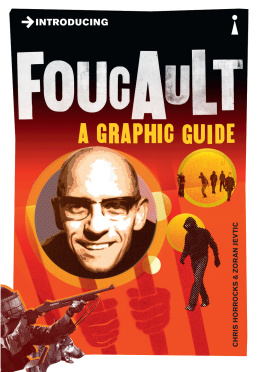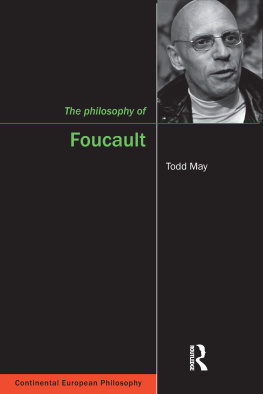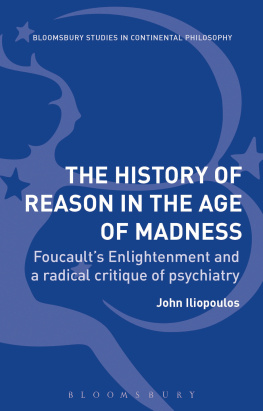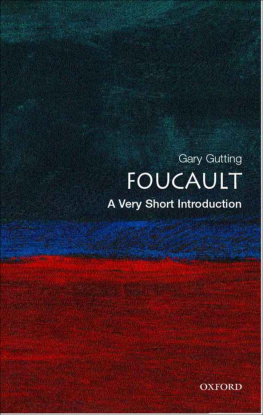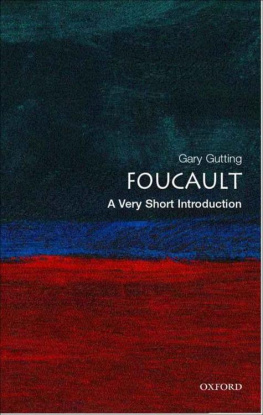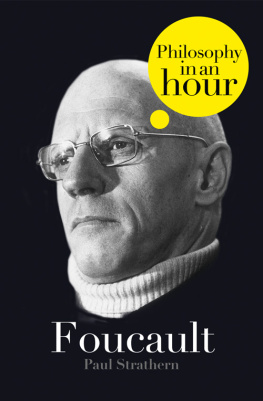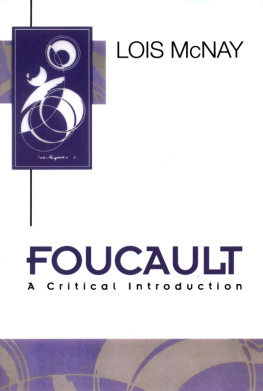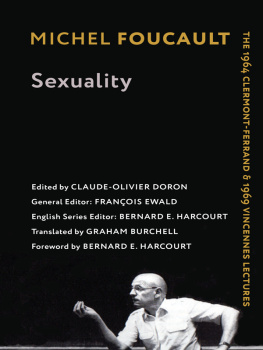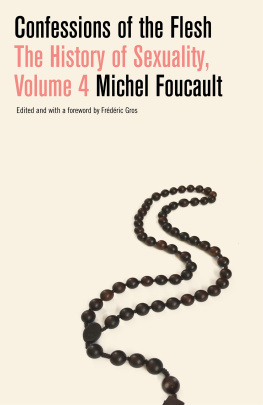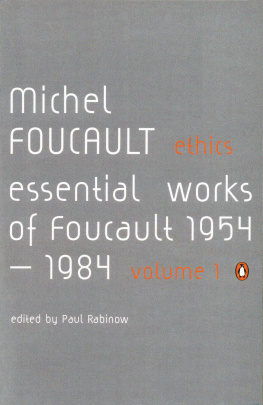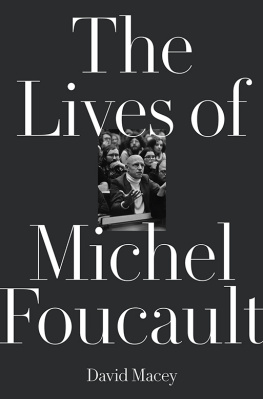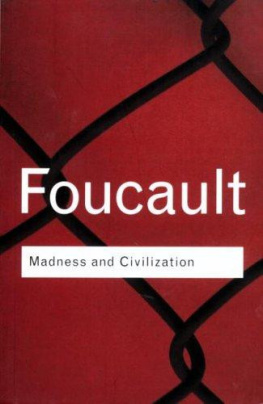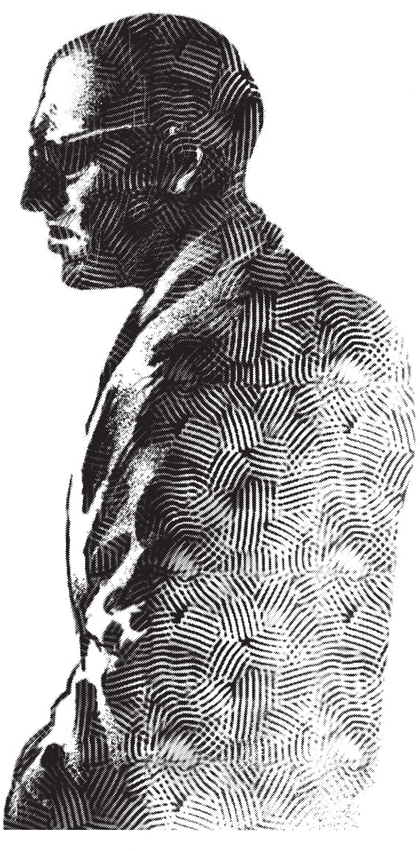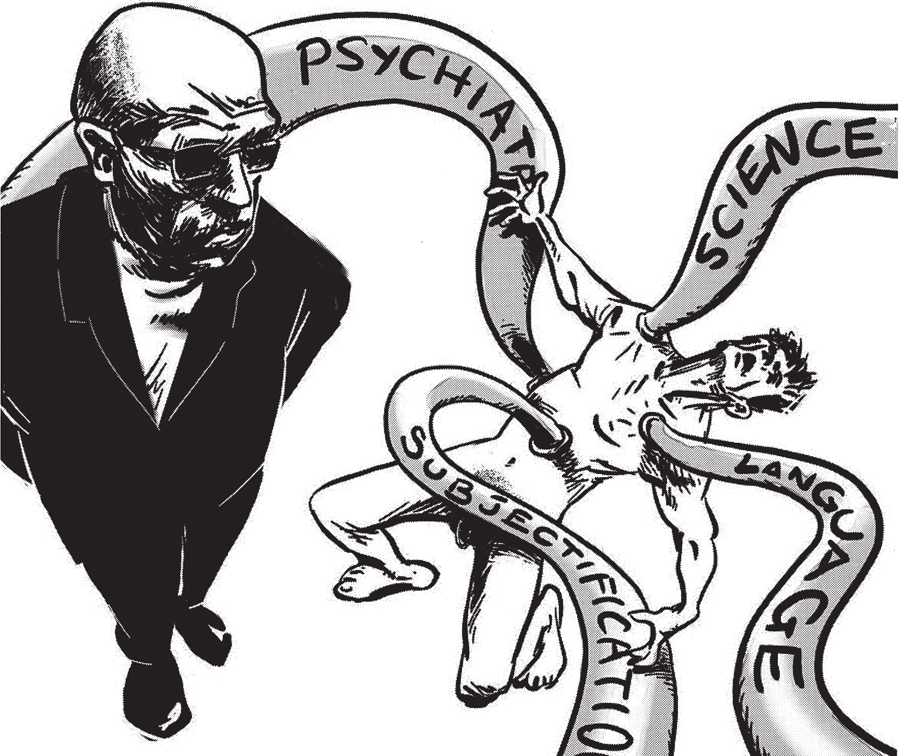Contents
Published by Icon Books Ltd, Omnibus Business Centre, 39-41 North Road, London N7 9DP
email:
www.introducingbooks.com
ISBN: 978-184831-769-7
Text copyright and illustrations copyright 2013 Icon Books Ltd
The author and artist have asserted their moral rights.
Originating editor: Richard Appignanesi
No part of this book may be reproduced in any form, or by any means, without prior permission in writing from the publisher.
I, Michel Foucault
To find the real Michel Foucault is to ask which one?
Should we look at the life of the man himself, who as a boy wanted to be a goldfish, but became a philosopher and historian, political activist, leather queen, bestseller, tireless campaigner for dissident causes?
What about his literary skill, combined with painstaking historical inquiry, his excellence as a pasta cook, captivating lecturing style, passion for sex with men, occasional drug-taking, barbed sense of humour, competitiveness, fierce temper and the fact that he came from a family of doctors and dearly loved his mother?
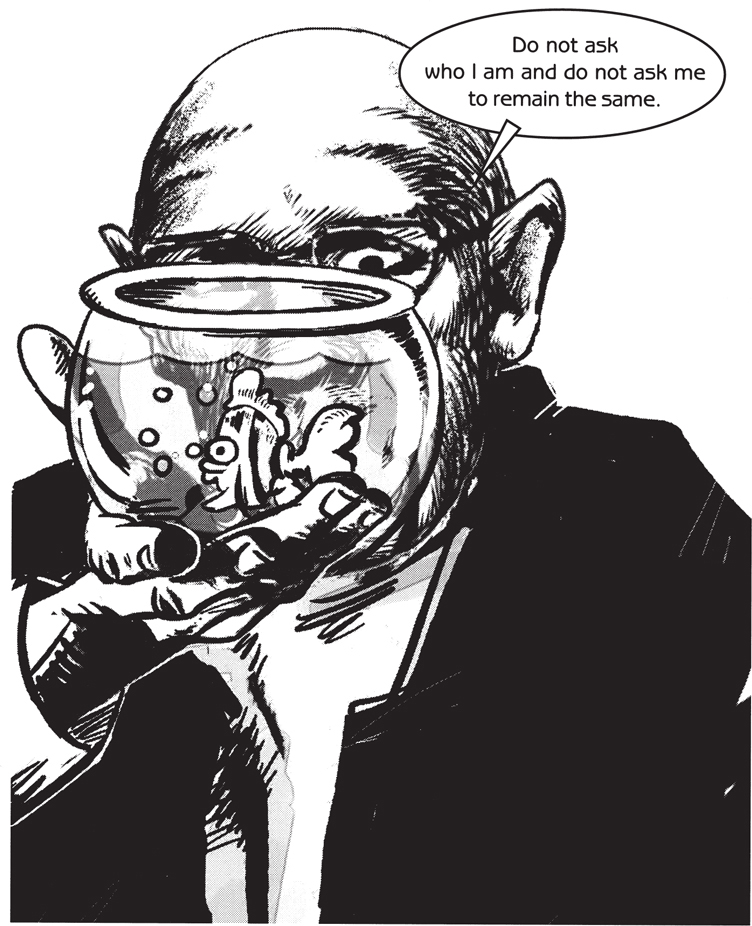
Do not ask who I am and do not ask me to remain the same.
Foucault the Author?
Or should we see Michel Foucault as the author, whose work combines brilliant insight and eccentric detail, uniting contemporary philosophical practice with the archaeology of the many documents he patiently retrieved from history? And what should we exclude, given the huge shifts in theoretical position over his career?
Foucault himself problematized the meaning of authorship a function, he claimed, which resolved or hid many contradictions.
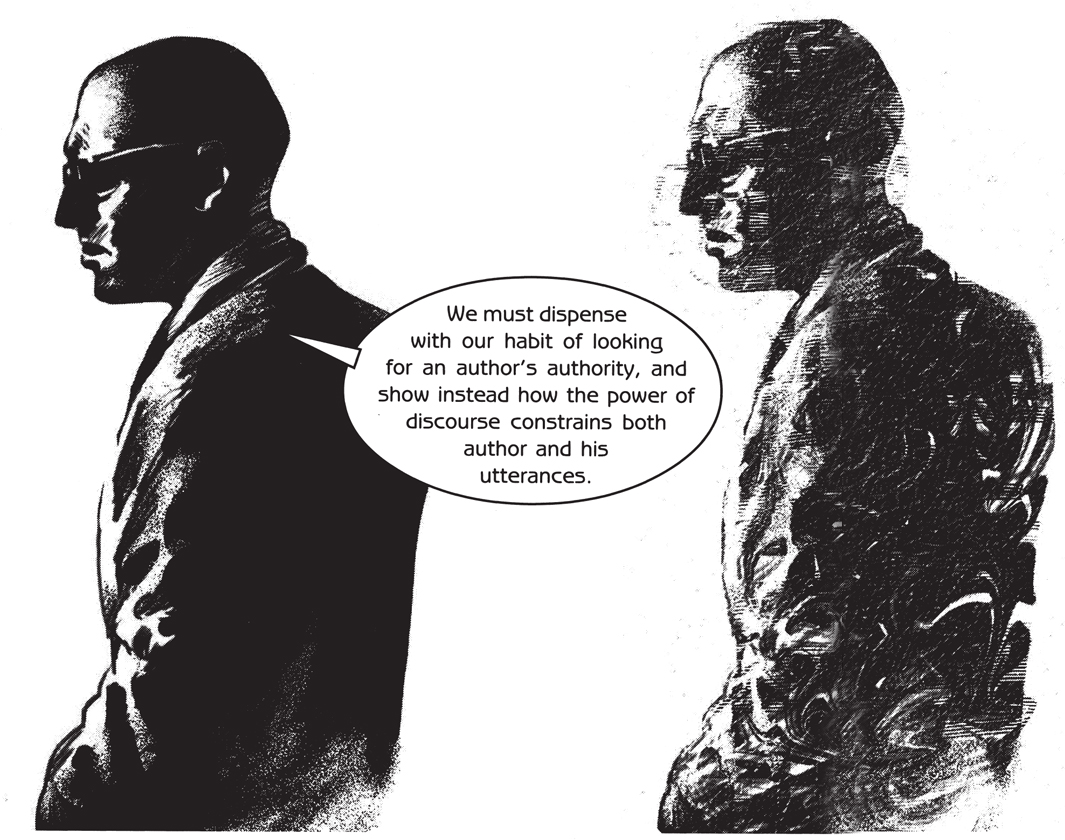
We must dispense with our habit of looking for an authors authority, and show instead how the power of discourse constrains both author and his utterances.
So Foucault was reluctant to write his own biography or have someone do it for him. But many have, since his death.
A Transdiscursive Man
Foucault gave us the term transdiscursive, which describes how, for example, Foucault is not simply an author of a book, but the author of a theory, tradition or discipline.
We can at least say that he was the instigator of a method of historical inquiry which has had major effects on the study of subjectivity, power, knowledge, discourse, history, sexuality, madness, the penal system and much else. Hence the term, Foucaldian.
There are many Foucaults whether they are all texts, or features in a network of institutional power, a regime of truth and knowledge, or the discourse of the author and his works. Lets explore the many layers of Foucault.
Foucaults Project
Foucault sought to account for the way in which human beings have historically become the subject and object of political, scientific, economic, philosophical, legal and social discourses and practices.
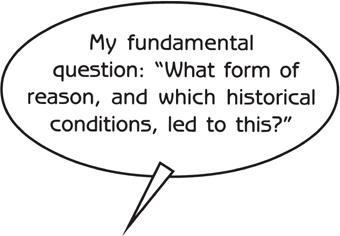
My fundamental question: What form of reason, and which historical conditions, led to this?
But Foucault does not take the idea of subjectivity in philosophical isolation. It becomes linked with and even produced by knowledge and power through dividing practices where, for example, psychiatry divides the mad from the sane.
Scientific classification: where science classifies the individual as the subject of life (biology), labour (economics) and language (linguistics).
Subjectification: the way the individual turns himself into a subject of health, sexuality, conduct, etc.
Foucault Fiction
In my books I do like to make fictional use of the materials I assemble or put together, and I deliberately make fictional constructions with authentic elements.
Lets fictionalize Foucaults life by turning it into a biographical account of Foucault and his oeuvre or work.
He was born Paul-Michel Foucault, on 15 October 1926, to Anne Malapert and wealthy surgeon Paul Foucault, in conservative Poitiers in France. Paul-Michel Foucault had a sister Francine and a younger brother, Denys.
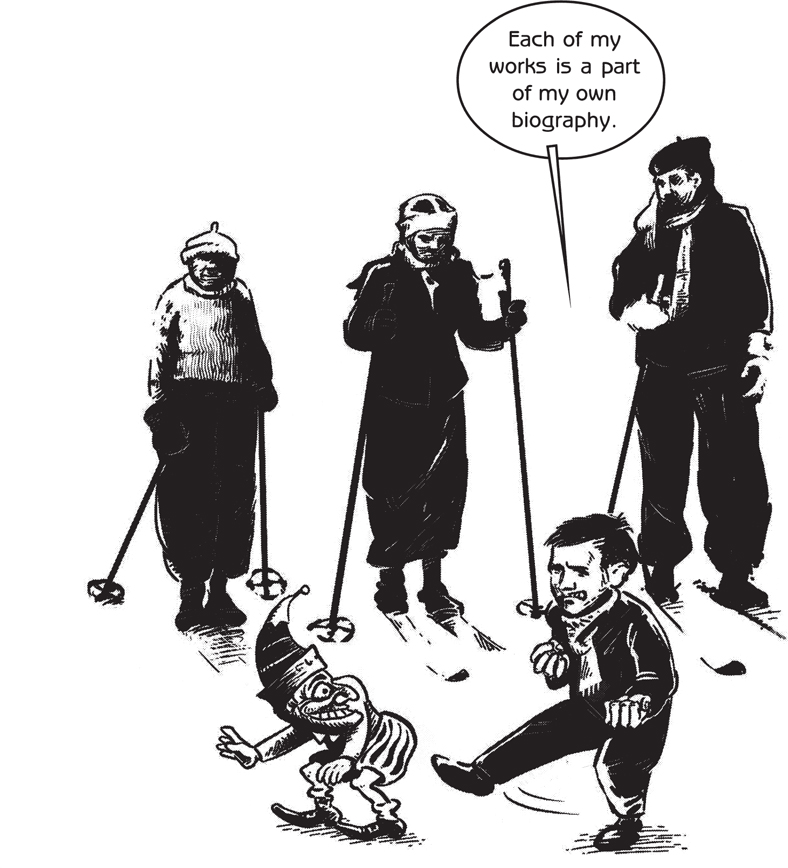
Each of my works is a part of my own biography.
Foucault had brown hair, a big nose and blue eyes. Foucault didnt like the name Paul-Michel, because nasty children made it sound like Polichinello (Punch)! He changed it to Michel perhaps expressing love for his Mum, whod insisted on the name at his birth.
Camp Catholics and Choirboys
Foucault was of the Catholic faith. Later, he said he enjoyed its camp ritual. He was even a choirboy for a while.
1930. Paul-Michel was enrolled early in elementary class at the Lyce Henri-IV.
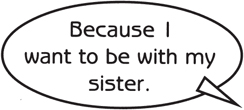
Because I want to be with my sister.
He was a young and disciplined student. Knowledge meant social promotion for his class.
He moved into the Lyce proper in 1932 and remained there until 1936 the year he saw refugees arriving from the Spanish Civil War.
He was an enthusiastic cyclist and tennis player, but he was short-sighted, and often missed the ball. He enjoyed trips to the theatre, and occasionally the cinema.
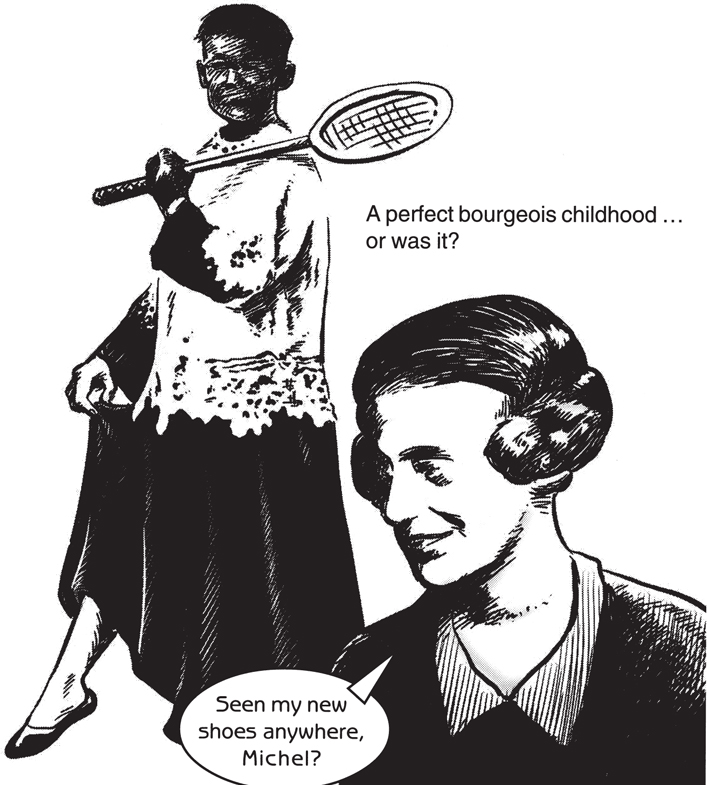
Seen my new shoes anywhere, Michel?
WAR!
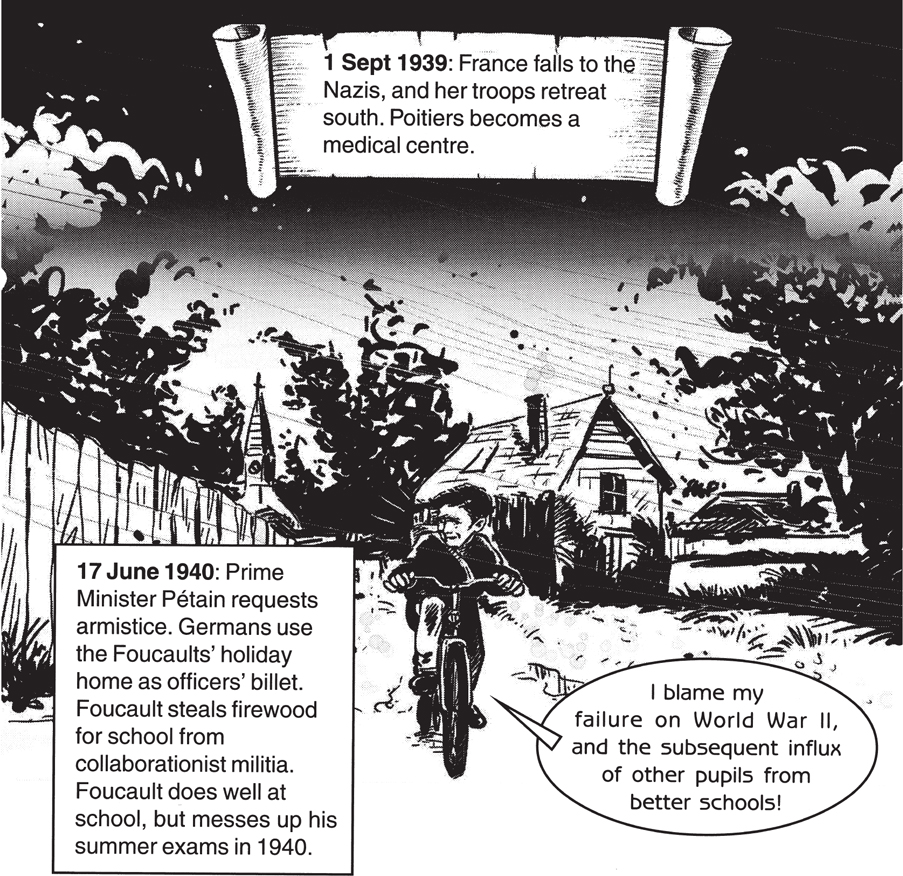
1 Sept 1939: France falls to the Nazis, and her troops retreat south. Poitiers becomes a medical centre.
17 June 1940: Prime Minister Ptain requests armistice. Germans use the Foucaults holiday home as officers billet. Foucault steals firewood for school from collaborationist militia. Foucault does well at school, but messes up his summer exams in 1940.
I blame my failure on world war II, and the subsequent influx of their pupils from better schools!
He transfers to the religious Collge Saint-Stanislas and gains prizes in French, history, Greek and English.
1942: Begins formal study in philosophy.
June 1943: Passes his baccalaurat. Argues with his father about his career. Medicine? Michel Foucault thought not he wanted to go to the prestigious academic hothouse, the ENS (cole Normale Suprieure) in Paris.

